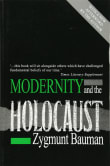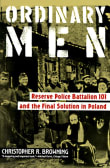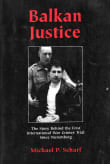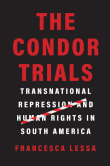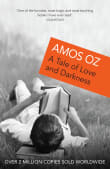Eichmann in Jerusalem

Book description
'A profound and documented analysis ... Bound to stir our minds and trouble our consciences' Chicago Tribune
Hannah Arendt's authoritative and stunning report on the trial of German Nazi SS leader Adolf Eichmann first appeared as a series of articles in The New Yorker in 1963. This revised edition includes…
Why read it?
4 authors picked Eichmann in Jerusalem as one of their favorite books. Why do they recommend it?

More than sixty years on, given the number of mini-Eichmanns that have infested just about every institution of our society, this book remains as relevant as today's headlines.

The grandmama of human rights-related trial accounts, and for good reason. Arendt covered the trial of Nazi official Adolf Eichmann in Jerusalem in the 1960s. Eichmann had been living in Argentina, and was kidnapped and taken to Israel, where he was tried and condemned for his role in the Holocaust. Arendt raises profound questions about the value of trials in the face of overwhelming evil, about how trials structure narratives, and about memory. Still issues we grapple with today.
From Naomi's list on bringing dictators and evil men to justice.

The book was influential in my earlier years as a scholar of the Holocaust because it raised so many questions as to how the Nazis were able to perpetrate the Holocaust. For example, were the Jewish Councils in the ghettos of Nazi-occupied Europe complicit in the deportations demanded by the Nazis which sent Jews to death camps such as Auschwitz and Treblinka? Was Eichmann simply a study in the ”banality of evil”, who was simply following orders in deporting Jews to the death camps? Arendt argued yes to both questions thus resulting in a furor among the scholars of Holocaust…
From Jack's list on the Holocaust and its aftermath.

Hannah Arendt’s report on the trial of the German Nazi bureaucrat Adolf Eichmann, in Jerusalem, confronts us with the uncomfortable truth of the banality of evil. Everything in us struggles against the concept that evil can be banal. We want to shout out that evil is monstrous and that an evil person like Adolf Eichmann, responsible for organizing the transport of millions of people to the Nazi death camps, could not possibly be anything other than a monster, certainly not an ordinary citizen like you and me. But no, Hannah Arendt shows us that he was indeed just that; an…
From Jane's list on understanding the human condition.
Want books like Eichmann in Jerusalem?
Our community of 12,000+ authors has personally recommended 100 books like Eichmann in Jerusalem.


